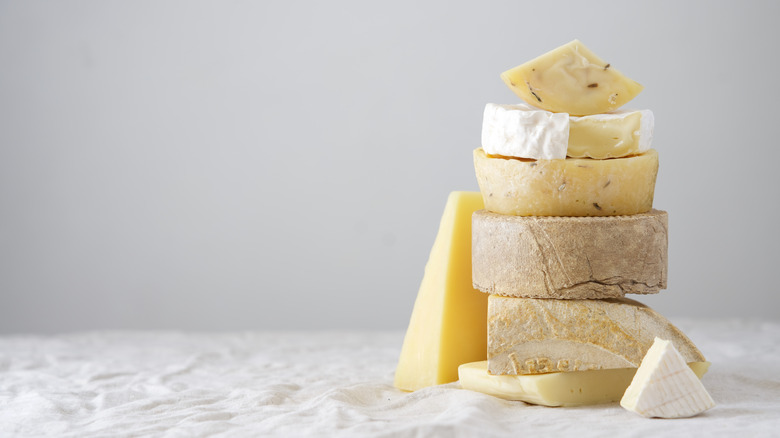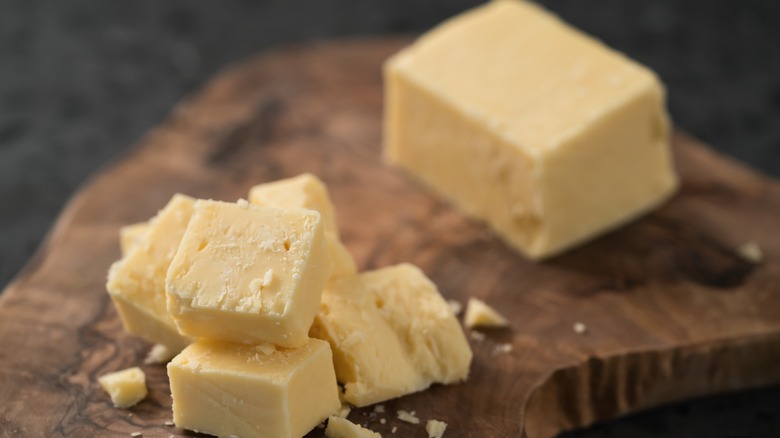The Main Difference Between Young And Old Cheese, Other Than Age
When discussing young and old cheese, terms like "fresh" and "aged" seem appropriate. Noting that a fresh cheese, like mozzarella, is soft and buttery, while an aged Parmigiano Reggiano is — according to Food and Wine — crystalline and tangy are the beginning of understanding the difference between younger and older cheeses. While physical age certainly contributes to the nature of cheese, the chief difference between a young and an old cheese is moisture content.
Bon Appétit tells us that as cheese ages, it will begin to lose moisture and develop a different nature than that of its younger companions. Aging cheese is a process that varies by cheese, country, and cheesemaker. Cheesemakers age cheese for many reasons — primarily to develop flavor. But the longer the cheese ages, the more moisture it will lose. There's one cheese, in particular, that shows this process in action.
A battle of premium cheeses
Cheddar cheese is a perfect example of the difference. Wisconsin Cheese describes young cheddar flavors as "mild, creamy, and smooth," while aged cheddar is "nutty, crumbly, and sharp."
Cabot Creamery of Vermont offers multiple types of cheddar — each of which has been aged for differing amounts of time, highlighting the varying moisture content levels. Mild cheddar, aged two to three months, is soft and smooth. Seriously Sharp, aged 12 to 14 months, is harder, more crumbly, and more intense flavor. Meanwhile, Cabot's premium cheddars are aged anywhere from two to five years, creating a crumbling, crystalized texture with a tangy taste. So, you can see exactly how the aging process takes moisture out of the cheese.
ScienceDirect, citing the 2016 Food and Health Encyclopedia, lists other hard, aged cheeses such as gruyere, Emmental, and Pecorino Romano — all of which lose moisture the longer they're aged. An exception is Limburger which, according to U.S. Dairy, actually softens as it ages. There's no doubt that it grows more pungent as well.

